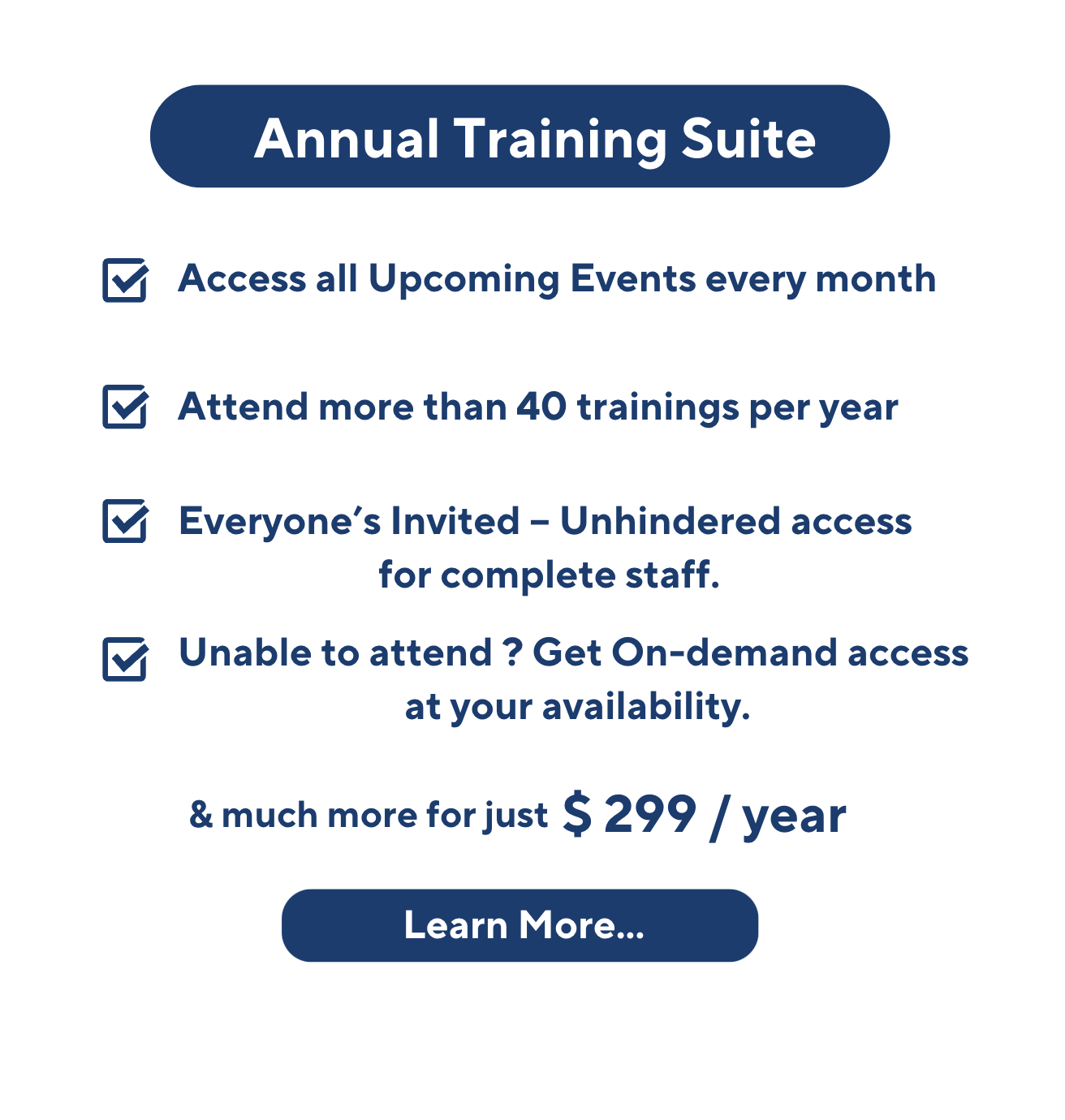State/Federal Payroll Deduction Changes For Employers - What Can & Cannot be Deducted from an Employee’s Wage

Webinar Background & Agenda :
Failure to comply with the recently updated regulations regarding employee wage deductions can expose employers to significant legal and financial consequences. Penalties for non-compliance are often steep, including fines, interest, and, in some cases, litigation or audits from regulatory bodies. These penalties not only hurt a company’s bottom line but can also damage its reputation. Employers are expected to meticulously follow federal and state guidelines to ensure all taxable income and hours worked are calculated correctly when determining an employee’s gross wages. Falling short in this area, even unintentionally, can result in audits, back-pay requirements, and interest on overdue amounts, which can quickly add up to substantial costs.
Areas covered in this webinar:
- Taxes — which are mandatory, which are a courtesy, and which ones the employee controls
- Child support—the limits but not beyond
- Tax levies —federal and state
- Creditor garnishments—how many can you honor and how often
- Voluntary wage assignments for “payday loans”—when are they required to be honored
- Handling fringe benefits such as health insurance or group term life
- Uniforms—when the employer pays for it and when the employee furnishes it
- Meals—when they become part of the employee’s wages
- Lodging—when it is part of the employee’s wages and when is it a perk
- Shortages—the employee came up short, so they have to cover that right?
- Breakage—you broke it so you have to pay for it, legal or not?
- Overpayments—the employee was overpaid so you can just take the money back, or can you?
- Advanced vacation pay—the employee knows the vacation hours were advanced so we can take them back when the employee quits can’t we?
- Loans to employees: what terms can be set while the employee is still active and what can be taken when the employee terminates
- Employee purchases—active employees and terminated employees
- Anti-wage theft laws and the states
Case Scenarios We Will Cover : This webinar will explain mandatory and optional deductions, including which ones employees can control, and how to process deductions for back taxes, payday loans, and garnishments. We'll also cover fringe benefits, voluntary and involuntary health insurance deductions, and the rules for deducting the costs of uniforms, cash shortages, and breakages. We'll address how to handle overpayments, advanced vacation time, and employee loans or purchases, highlighting the differences between federal and state laws and which one employers must follow. What must be deducted from an employee's wages? What is legally allowed, and what is prohibited? These critical questions must be answered accurately before processing payroll, especially when it's the employee's final check, as different rules may apply. Payroll must handle deductions with precision, as errors can lead to serious penalties. Failing to deduct proper taxes could result in fines from the IRS, while illegal deductions for fringe benefits or overpayments might attract audits from the Department of Labor. Sometimes, what is allowed under federal law may not be permitted by the state, adding to the complexity.
Instructor Profile: Vicki M. Lambert, CPP, is President and Academic Director of The Payroll Advisor™, a firm specializing in payroll education and training. The company’s website www.thepayrolladvisor.com offers a payroll news service, Payroll 24/7, which keeps payroll professionals up-to-date on the latest rules and regulations. With over 40 years of hands-on experience in all facets of payroll functions as well as over 30 years as an educator, training program developer, and author, Ms. Lambert has become the most sought-after and respected voice in the practice and management of payroll issues. She has conducted open market training seminars on payroll issues across the United States that have been attended by executives and professionals from some of the most prestigious firms in business today. A pioneer in electronic and online education, Ms. Lambert produces and presents payroll related audio seminars, webinars and webcasts for clients, APA chapters and business groups throughout the country. Ms. Lambert is an adjunct faculty member at Brandman University in Southern California and is the creator of and instructor for their Practical Payroll Online program, which is approved for recertification hours by the APA. She is also the instructor for the American Payroll Association’s “PayTrain” online program also offered by Brandman University.
